Yoo Jung Oh
Designing and Evaluating Multi-Chatbot Interface for Human-AI Communication: Preliminary Findings from a Persuasion Task
Jun 28, 2024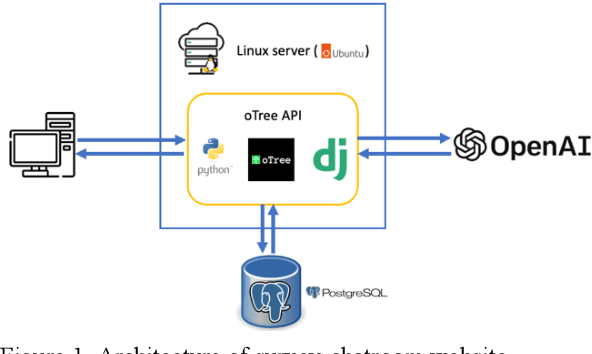
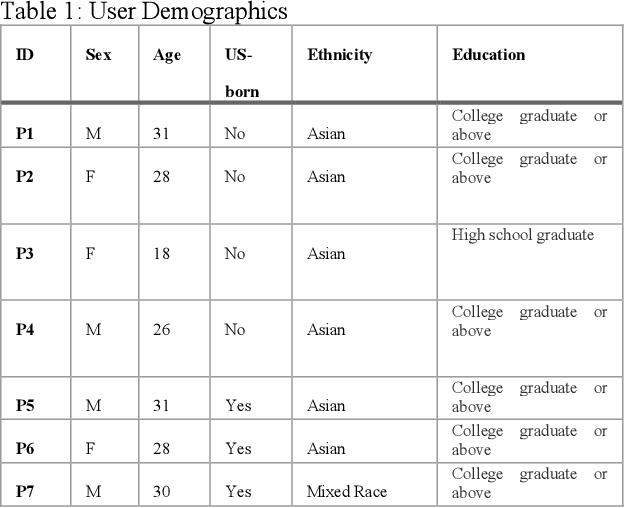
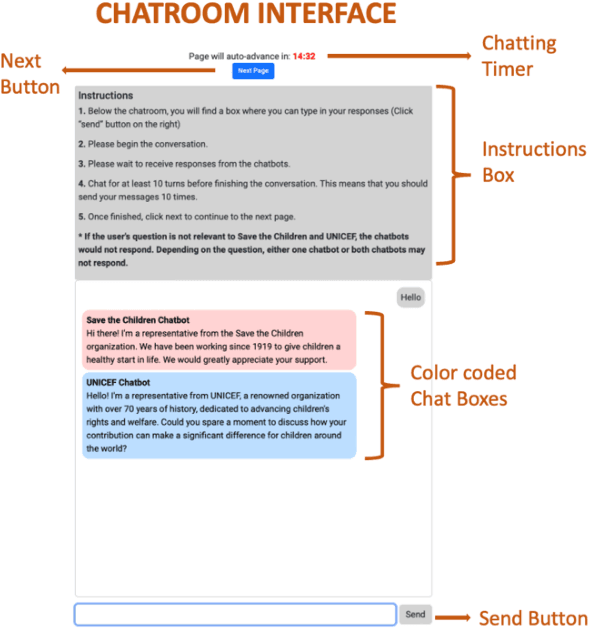
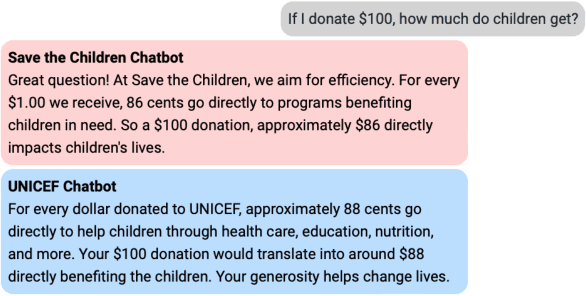
Abstract:The dynamics of human-AI communication have been reshaped by language models such as ChatGPT. However, extant research has primarily focused on dyadic communication, leaving much to be explored regarding the dynamics of human-AI communication in group settings. The availability of multiple language model chatbots presents a unique opportunity for scholars to better understand the interaction between humans and multiple chatbots. This study examines the impact of multi-chatbot communication in a specific persuasion setting: promoting charitable donations. We developed an online environment that enables multi-chatbot communication and conducted a pilot experiment utilizing two GPT-based chatbots, Save the Children and UNICEF chatbots, to promote charitable donations. In this study, we present our development process of the multi-chatbot interface and present preliminary findings from a pilot experiment. Analysis of qualitative and quantitative feedback are presented, and limitations are addressed.
Evaluation of In-Person Counseling Strategies To Develop Physical Activity Chatbot for Women
Jul 22, 2021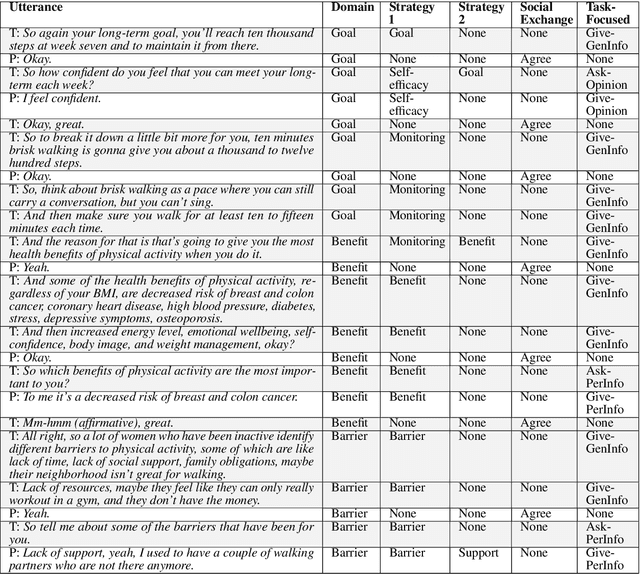
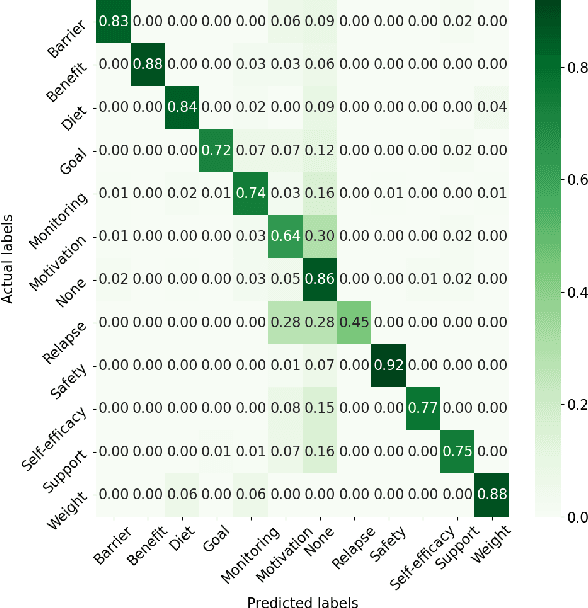
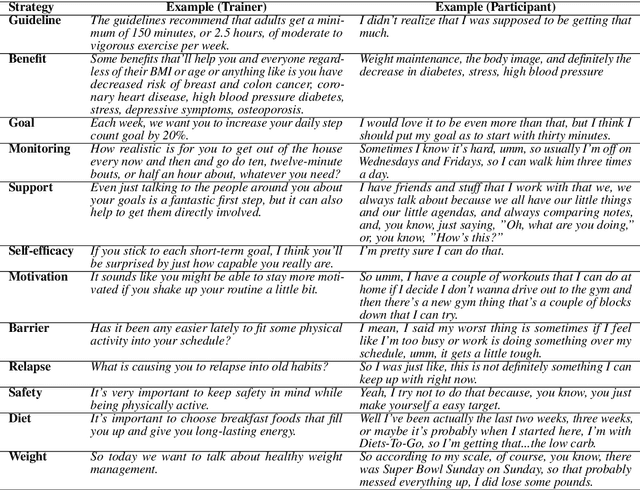
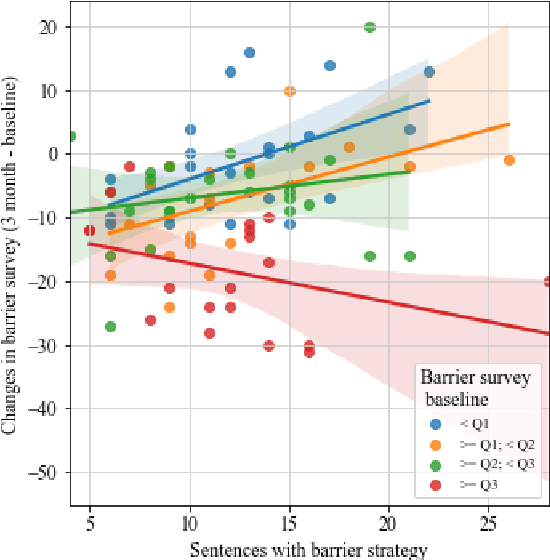
Abstract:Artificial intelligence chatbots are the vanguard in technology-based intervention to change people's behavior. To develop intervention chatbots, the first step is to understand natural language conversation strategies in human conversation. This work introduces an intervention conversation dataset collected from a real-world physical activity intervention program for women. We designed comprehensive annotation schemes in four dimensions (domain, strategy, social exchange, and task-focused exchange) and annotated a subset of dialogs. We built a strategy classifier with context information to detect strategies from both trainers and participants based on the annotation. To understand how human intervention induces effective behavior changes, we analyzed the relationships between the intervention strategies and the participants' changes in the barrier and social support for physical activity. We also analyzed how participant's baseline weight correlates to the amount of occurrence of the corresponding strategy. This work lays the foundation for developing a personalized physical activity intervention bot. The dataset and code are available at https://github.com/KaihuiLiang/physical-activity-counseling
 Add to Chrome
Add to Chrome Add to Firefox
Add to Firefox Add to Edge
Add to Edge